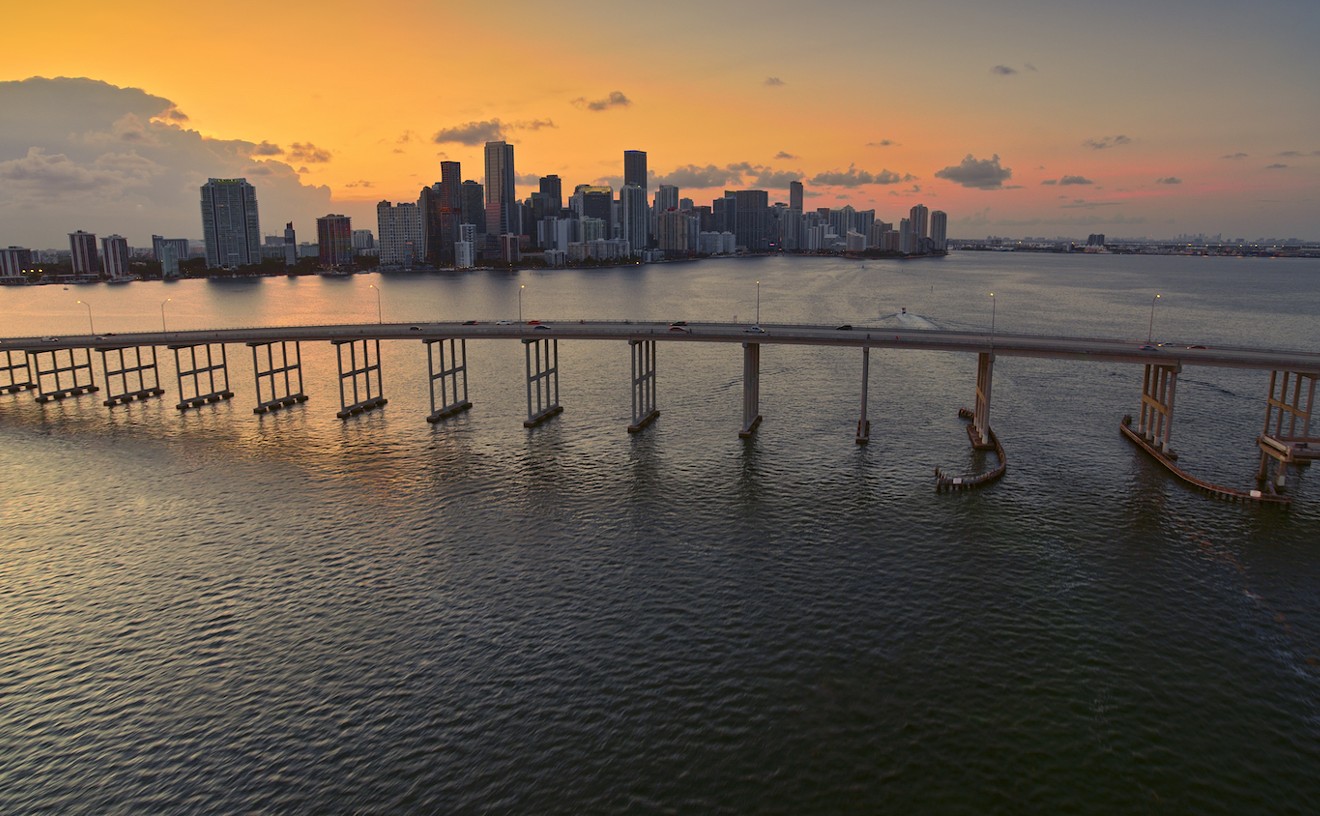Originally proposed by Gov. Ron DeSantis in September as the Combatting Violence, Disorder, and Looting and Law Enforcement Protection Act, the two companion bills in the state Senate and House of Representatives attempt to crack down on protesters deemed to be participating in a "riot" or "unlawful assembly" and limit the rights of local governments to reduce police budgets.
In a scathing January 7 public statement, the Center for Biological Diversity condemned the bills as an affront to Floridians' constitutional rights and called the proposed legislation "shockingly un-American."
Jaclyn Lopez, the center's Florida director, says the bills could have unintended consequences for groups that protest for environmental causes.
"It's a very disturbing turn of events in Florida to see our leaders moving in the direction of fascism," Lopez tells New Times. "The threat to environmentalists may not be obvious, but the point [of these bills] is to squash the First Amendment rights of people who want to speak out. It might be someone protesting for racial equality or someone speaking out for clean water."
As proposed, some provisions of the bills include:
- Making it unlawful to demonstrate in a public street, even if someone has a permit to do so
- Requiring mandatory jail time and bail if someone is arrested for participating in an "unlawful assembly"
- Waiving sovereign immunity for any municipality that "obstructs or interferes with the ability of a municipal law enforcement agency to provide reasonable law enforcement protection during a riot or unlawful assembly"
- Giving the state control over municipal operating budgets if a resident complains that their municipality is lowering the police budget
- Giving someone sued for wrongful death an affirmative defense if the person who died was participating in a riot or unlawful assembly
"[Protesting] is the basis on which Sierra Club works. We put pressure on decisionmakers and make clear the will of the people," says Cris Costello, a senior organizing manager for the Sierra Club. "Without protection from misguided attempts to rein in that right to demonstrate, we are at a serious disadvantage."
Both organizations, which have histories of supporting civil-rights movements such as Black Lives Matter, are speaking out against the bills before the Florida Legislature begins its regular session in March.
Although the current versions of the bills were introduced last week after the attacks by pro-Trump rioters on the U.S. Capitol in Washington, D.C., DeSantis initially proposed the legislation in the wake of last summer's Black Lives Matter protests.
"The fact that the legislation was thought up and realized after the movement for Black lives around Florida — that's not lost on us," Costello tells New Times. "We're no dummies."
The bills would give Florida some of the harshest laws against protesters in the U.S. DeSantis previously said in an interview with Tucker Carlson that he was concerned while watching protests in Minnesota after the death of George Floyd and frustrated by the local governments that ordered police to hold back during demonstrations. But the governor's proposal drew calls of fascism from civil-rights groups and the British publication the Independent.
The language in the bills specifically criminalizes participating in "riots" and "unlawful assemblies," but Lopez and Costello worry those terms will be used subjectively by law enforcement officers or elected officials to crack down on any movement they disagree with, including movements for environmental justice.
"This proposal isn't truly intended to address rioting. It is written in a way to crush free speech. Floridians of all stripes should be worried because things can shift very quickly depending on who's in power," Lopez says.












